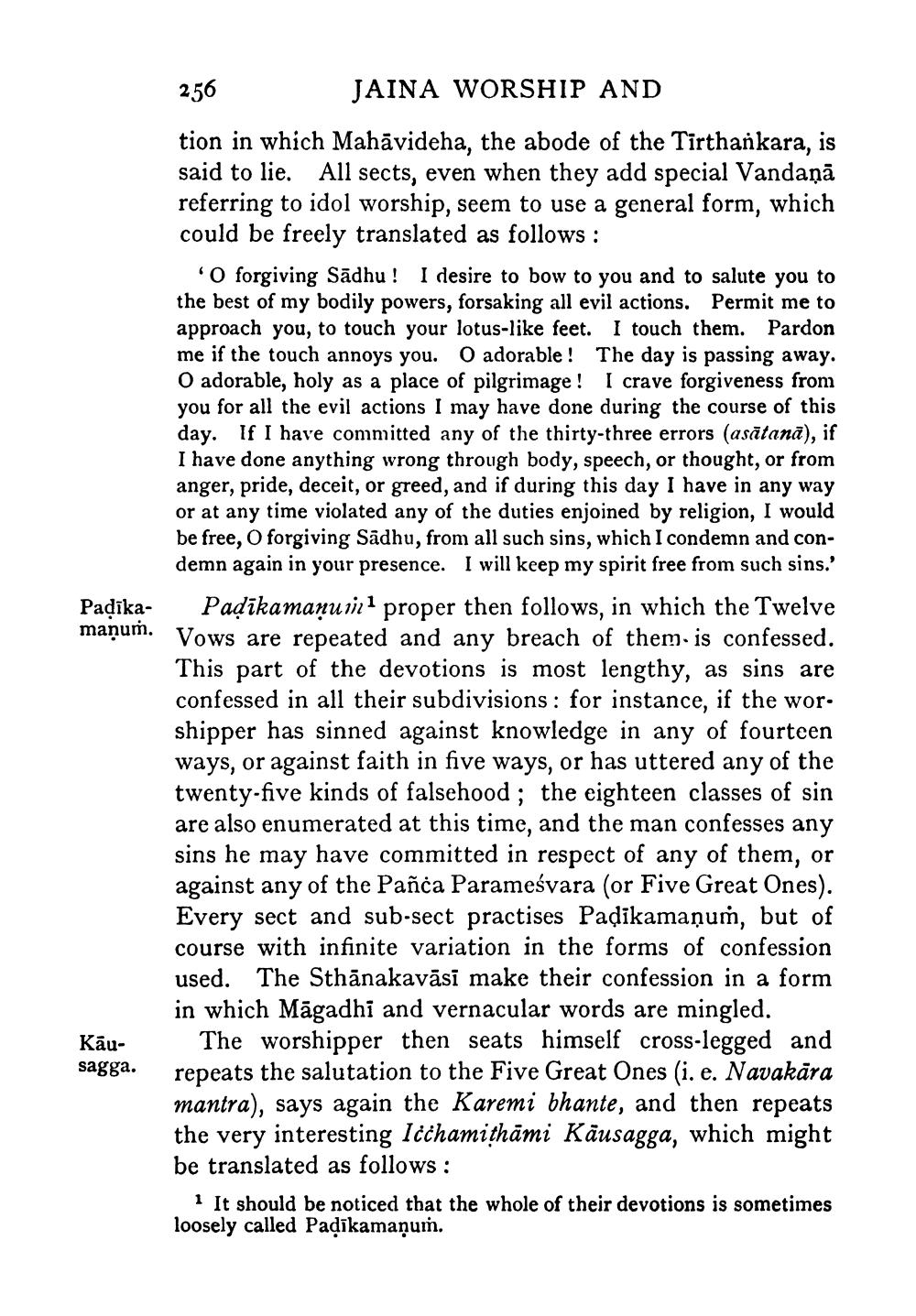________________
256
JAINA WORSHIP AND
Padikamaņum.
tion in which Mahāvideha, the abode of the Tīrthankara, is said to lie. All sects, even when they add special Vandaņā referring to idol worship, seem to use a general form, which could be freely translated as follows:
O forgiving Sadhu! I desire to bow to you and to salute you to the best of my bodily powers, forsaking all evil actions. Permit me to approach you, to touch your lotus-like feet. I touch them. Pardon me if the touch annoys you. O adorable! The day is passing away. O adorable, holy as a place of pilgrimage! I crave forgiveness from you for all the evil actions I may have done during the course of this day. If I have committed any of the thirty-three errors (asātanā), if I have done anything wrong through body, speech, or thought, or from anger, pride, deceit, or greed, and if during this day I have in any way or at any time violated any of the duties enjoined by religion, I would be free, O forgiving Sadhu, from all such sins, which I condemn and condemn again in your presence. I will keep my spirit free from such sins.'
Padīkamanuil proper then follows, in which the Twelve Vows are repeated and any breach of them. is confessed. This part of the devotions is most lengthy, as sins are confessed in all their subdivisions : for instance, if the wor. shipper has sinned against knowledge in any of fourteen ways, or against faith in five ways, or has uttered any of the twenty-five kinds of falsehood; the eighteen classes of sin are also enumerated at this time, and the man confesses any sins he may have committed in respect of any of them, or against any of the Pañča Parameśvara (or Five Great Ones). Every sect and sub-sect practises Paļikamaņum, but of course with infinite variation in the forms of confession used. The Sthānakavāsi make their confession in a form in which Māgadhi and vernacular words are mingled.
The worshipper then seats himself cross-legged and repeats the salutation to the Five Great Ones (i. e. Navakāra mantra), says again the Karemi bhante, and then repeats the very interesting lċċhamithāmi Kāusagga, which might be translated as follows:
1 It should be noticed that the whole of their devotions is sometimes loosely called Padīkamaņum.
Kāusagga.




